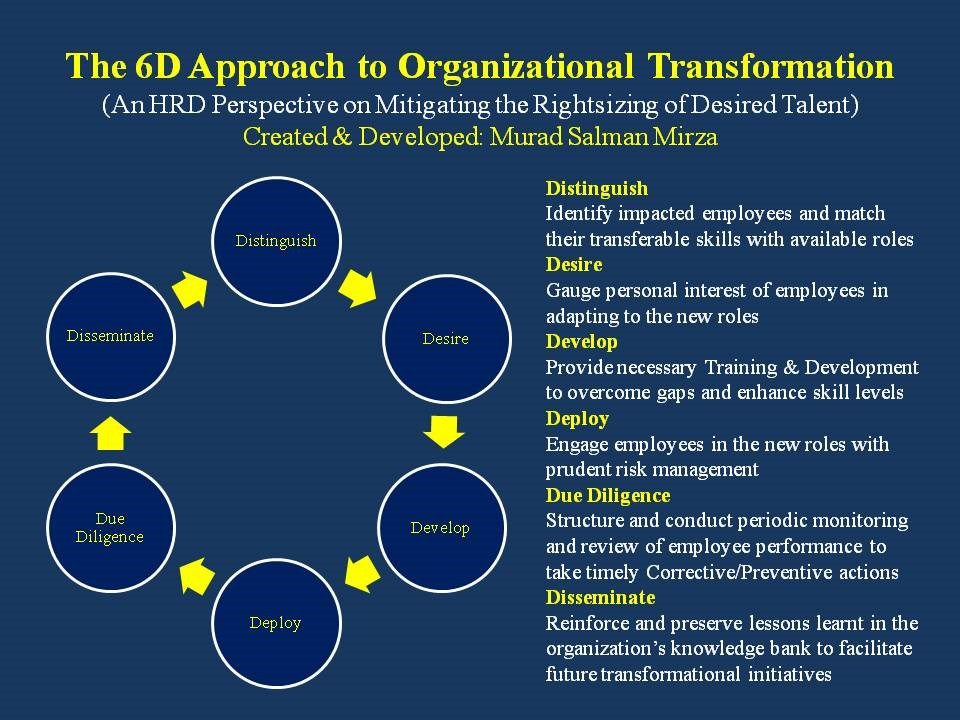The 6D approach is a systematic methodology for ensuring that the existing workforce is readily able to face business challenges in an uncertain economic environment.
It provides a viable option for the senior management to retain desired talent, in view of cost-cutting pressures, while minimizing the need for redundancy and avoiding the unnecessary higher costs of new hiring in future. The specific phases of the respective approach are as follows:

Distinguish Phase
This phase involves the identification of impacted employees and administering the appropriate psychometric test to them for determining the comprehensive range of embedded skills/competencies that complement the existing professional strengths of the employee, from a Human Resource Development (HRD) perspective, in terms of being suitable for available positions within the organization
Documents used = Talent Management Plan, Psychometric Test Report
Desire Phase
This phase involves the conducting of a personal interview with the employee to gauge his/her interest in leveraging the comprehensive range of embedded skills/competencies that have been identified by the psychometric test, in addition to his/her existing professional strengths, for considering a suitable available position within the organization
Document used = Personal Interview Questionnaire
Develop Phase
This phase involves the provision of relevant training/developing/coaching/mentoring program to inculcate the necessary level of required expertise that is a pre-requisite for seamlessly inducting the employee into the desired available position
Document used = Talent Management Plan
Deploy Phase
This phase involves all the activities pertaining to ensuring that the employee is fully engaged in his/her new position within the organization and includes proactive measures to safeguard against assessed risks for ensuring higher probability of success
Document used = Talent Management Plan
Due Diligence Phase
This phase involves the structured monitoring and periodic review of the employee’s performance in his/her new position to ensure and assure smooth settlement with timely corrective/preventive actions
Document used = Talent Management Report
Disseminate Phase
This phase involves the reinforcement and preservation of the knowledge bank within the organization to benefit from the lessons learnt in optimization of the human capital for coping with the ability to meet challenges in an uncertain economic environment.
Document used = Talent Management Report
Parting Message
This framework has been presented as a ‘baseline’’, upon which, future strategies can be effectively and efficiently developed, implemented, monitored, reinforced, reviewed and improved to complement the ‘‘Big Picture’ within the Talent Management domain.






